Other Services
Our Allied Health professionals have a diversity of skills, giving us the ability to better personalise your treatment. These include Balance exercises, Strengthening, Hydrotherapy, Core classes, Gym programmes, Acupuncture, Dry needling, Massage and Electrotherapy. Having multiple skill sets ensures better health outcomes. Please see below some examples of our other services.
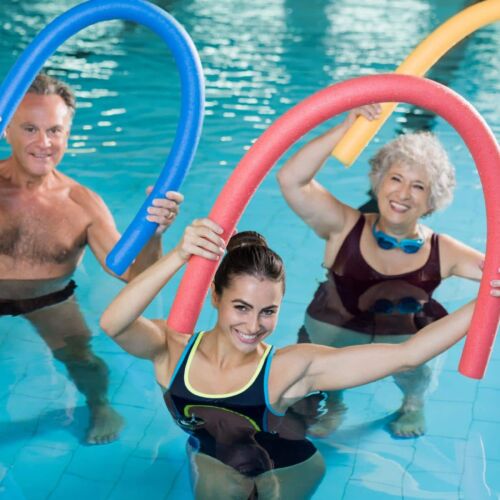
Hydrotherapy/ Pool exercises
Water is a fantastic medium to exercise in, especially for those who have pain exercising on land. The exercises can relieve pain, improving range of motion, strengthen and improving function. The weight on you lower limbs is reduced by approximately 75% when exercising in water at chest height. The density of water increases resistance on your muscles for strengthening. Hydrotherapy pools are generally kept at 33-36*c and this warmth helps to reduce muscle tension. The pressure on your lower body (hydrostatic pressure) can also assist in lower limb circulation when exercising in water. Best of all it’s fun!
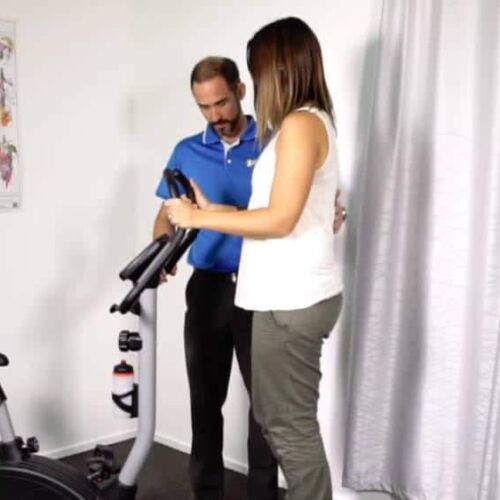
Exercise Physiology/ EP
Exercise Physiologists offer treatments based on physical activity. There intervention aims to improve general health, reduce pain, increase strength, maintain fitness and assists in preventing chronic diseases. Exercise has an abundance of evidence proving its benefits for chronic conditions. Some chronic diseases treated by Exercise Physiologists include heart disease, osteoporosis, weakness, diabetes, obesity, cancer and depression.
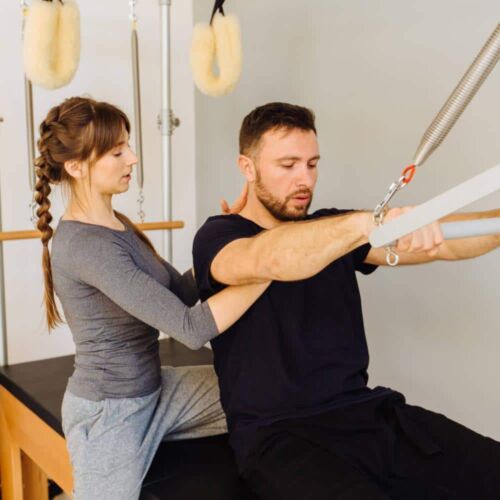
Clinical Pilates / Core Strengthening
Pilates is a light resistive exercise that has a strong focus on core strengthening. Pilates can be performed on a mat or on specialized equipment. Mat Pilates utilizes various body positions and body weight to strengthen muscles. Machines Pilates uses light resistance (usually from springs) to strengthen muscles. Physiotherapy/Exercise Physiology led Pilates is an enjoyable way to improve your core, abdominal, back and pelvic muscle strength. Best of all, Pilates under Allied Health guidance is low risk and tailored to you needs. When an Allied health professional is supervising your exercises they will take into account your aches and pains, modifying your routine accordingly. Pilates can also help to improve fitness or lose weight.
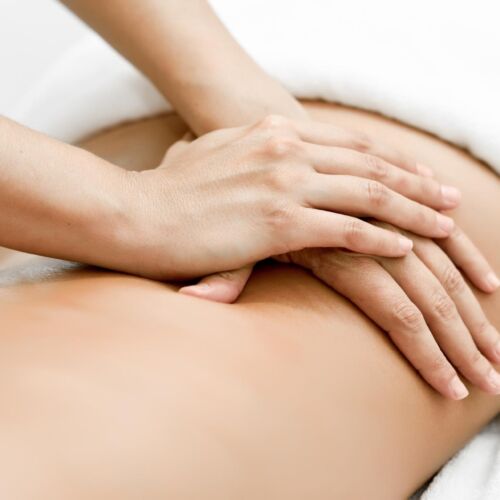
Massage/ Soft tissue release
Massage is a core component of Physiotherapy treatments. Massage has been used in all cultures for thousands of years. The benefits of massage are not only physical (reducing muscles tension and pain) but psychological. Massage assists to reduce stress, anxiety and promotes a general sense of wellbeing. The additional advantages of massage by a Physiotherapist is their strong clinical knowledge of medical conditions and anatomy.
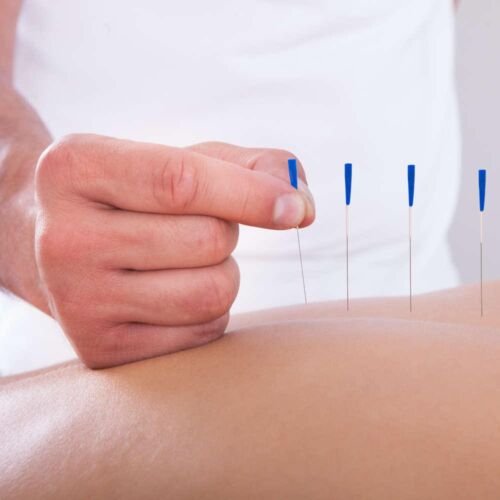
Acupuncture/ Dry Needling
Western acupuncture is a version of Chinese acupuncture and uses similar points. However, Western acupuncture uses current knowledge of anatomy, physiology, biochemistry, pathology, and the principles of evidence-based medicine. Acupuncture has its effects by altering the peripheral and central nervous system. It acts on local axon reflexes, segmental and extra-segmental neuromodulation, and other central nervous system effects of the brain and spinal cord. Dry needling is more focused on tight regions within a muscle, called the ‘motor unit’. In Dry needling the therapist is trying to elicit a twitch response in the muscle. This response has been shown to reduce motor unit activity and overall muscles tension. Acupuncture and Dry Needling is an alternative to other soft tissue therapies such as massage.
